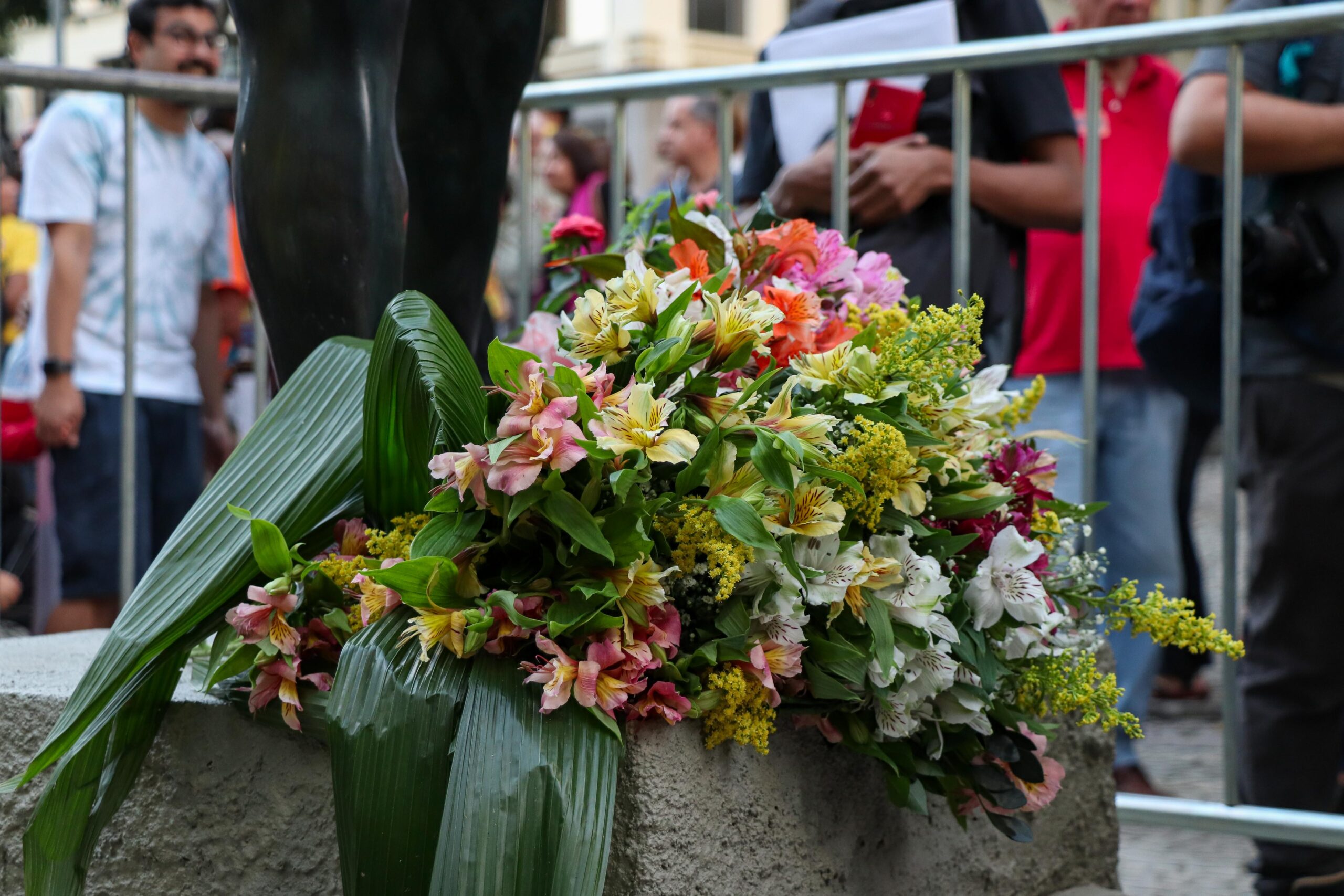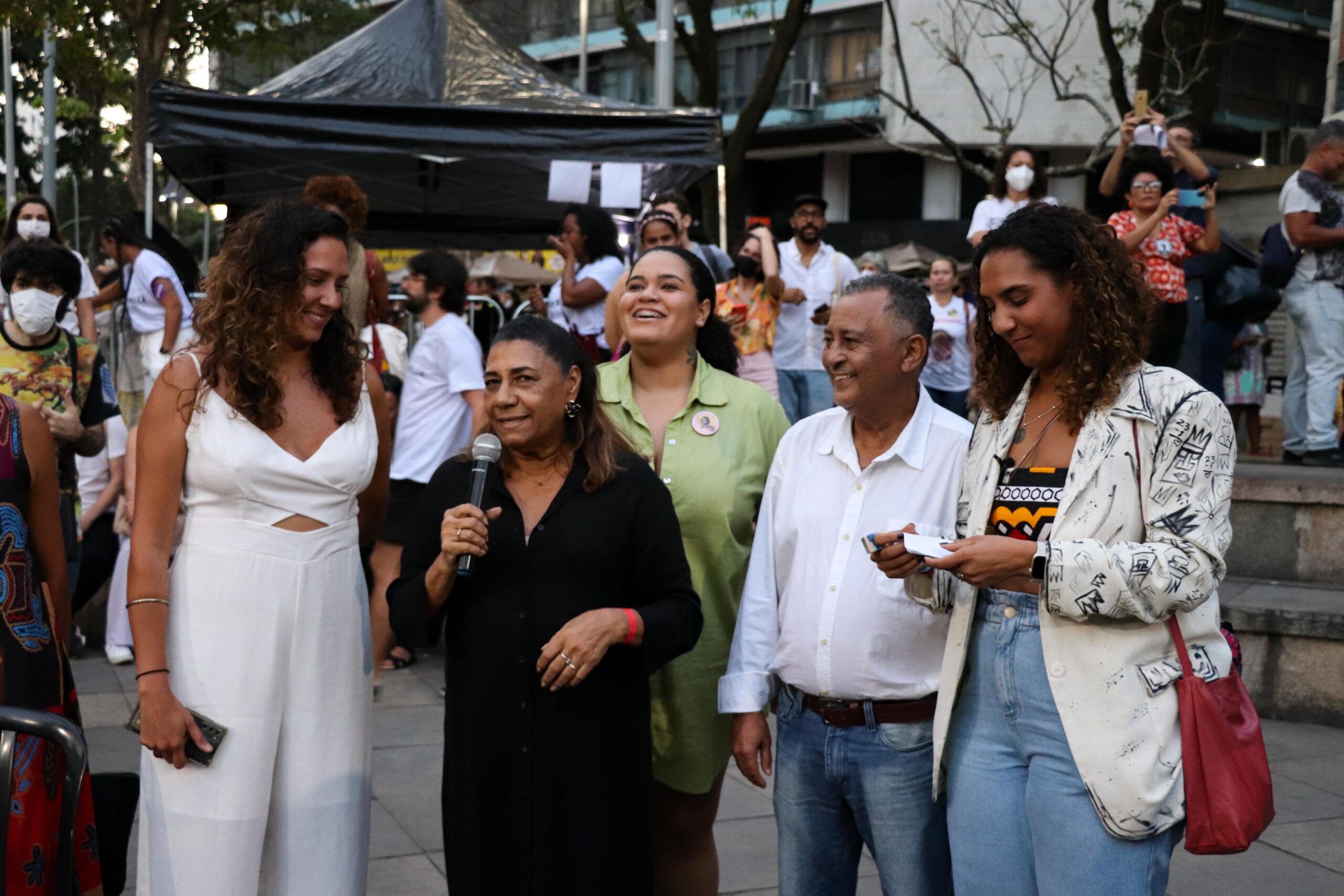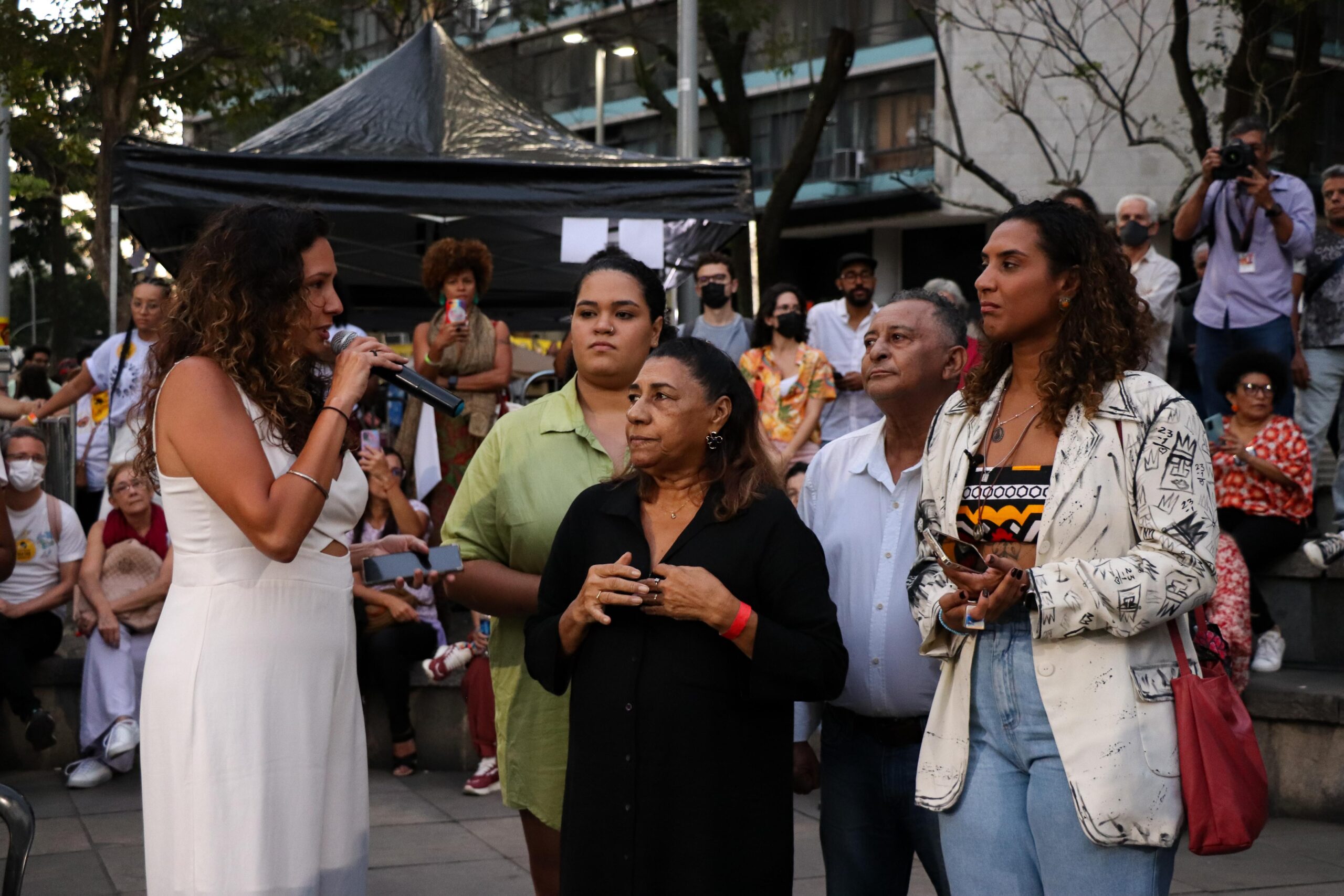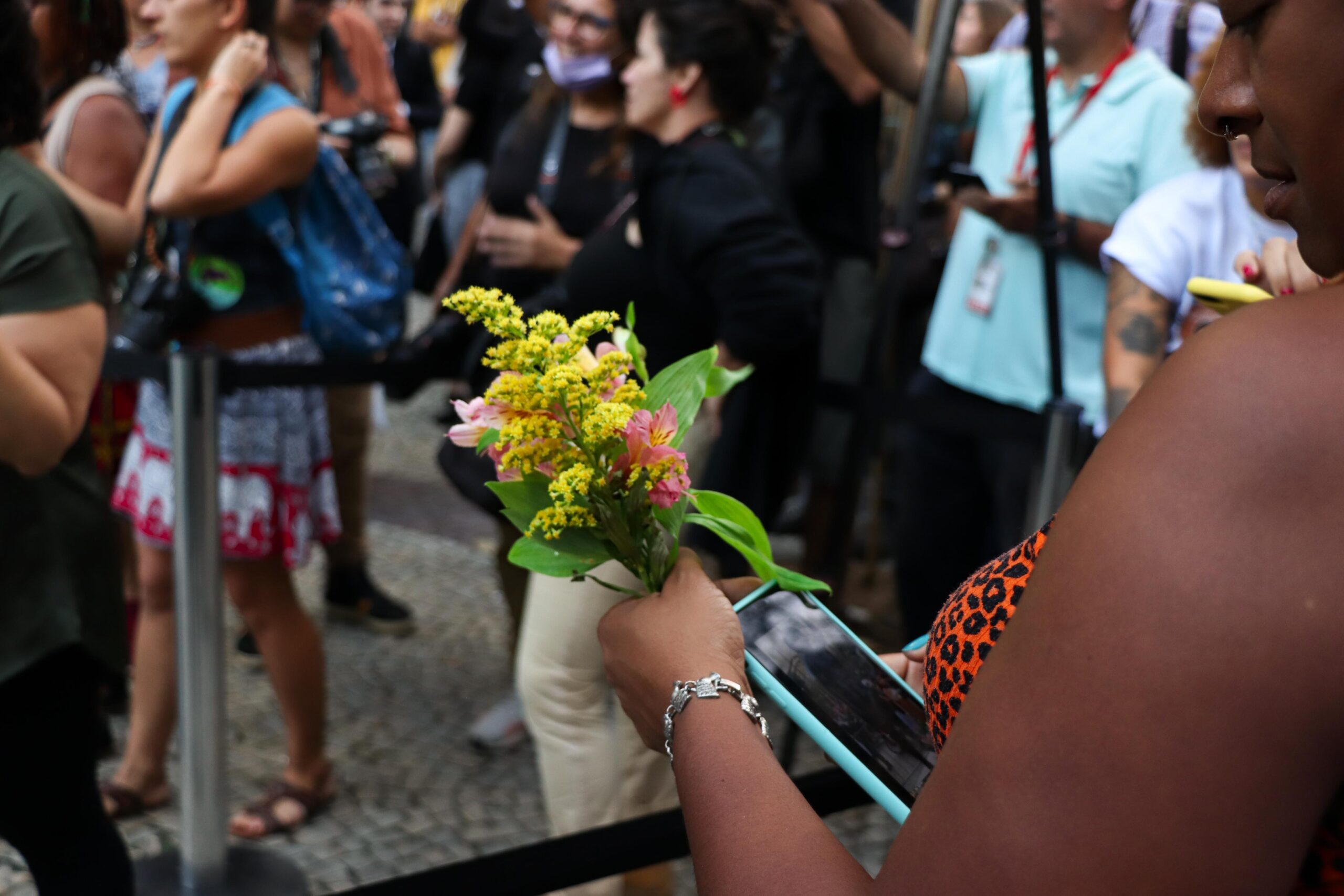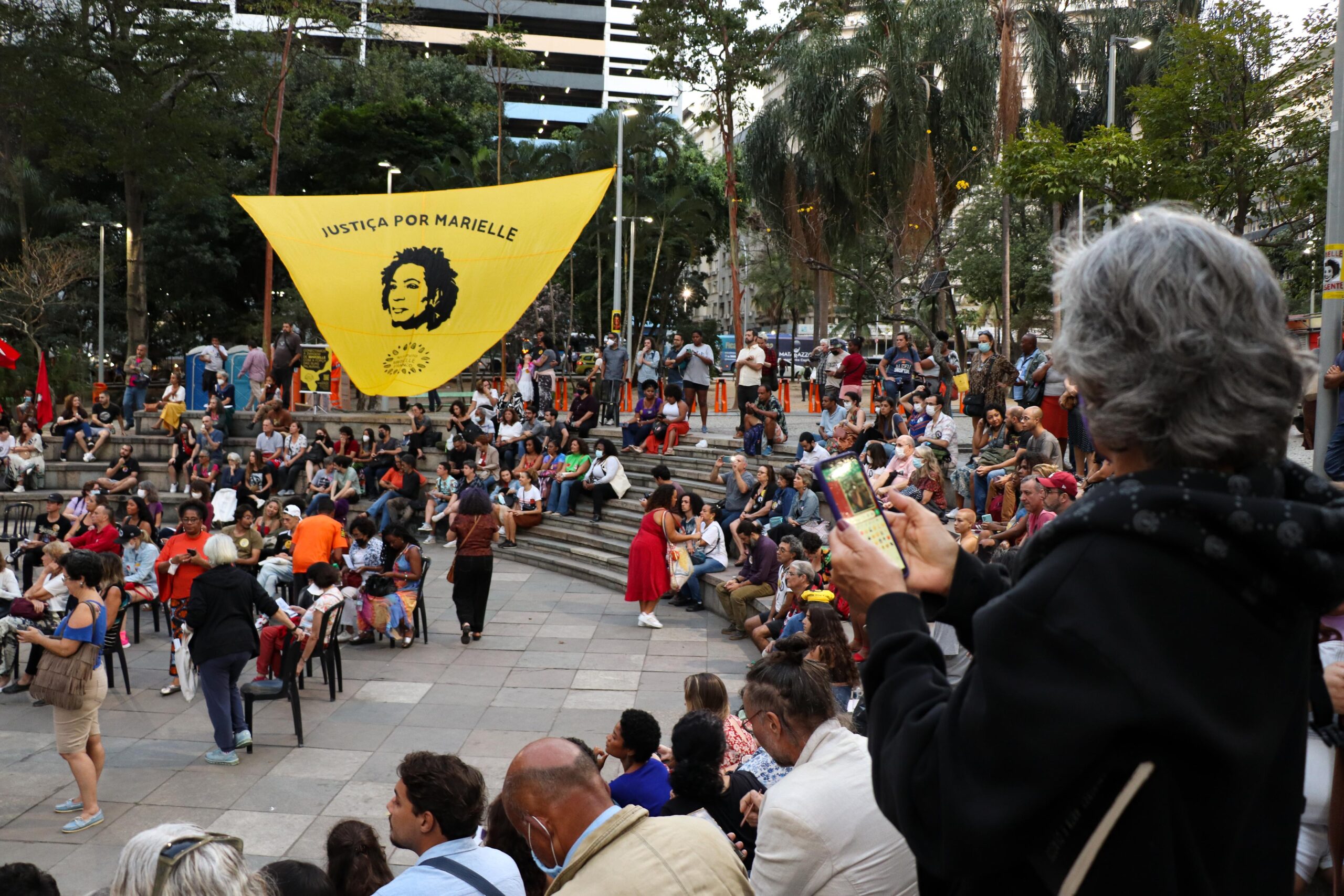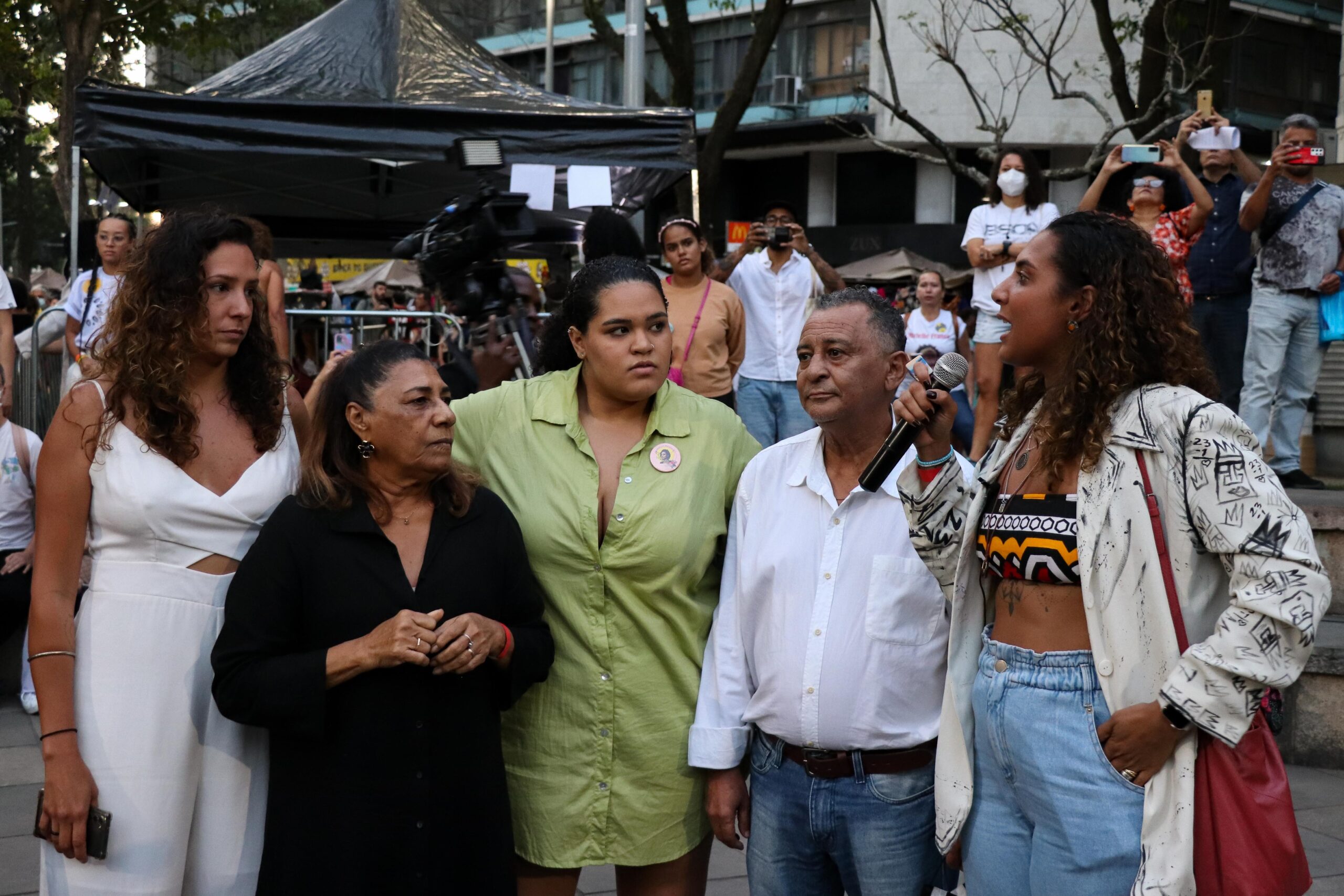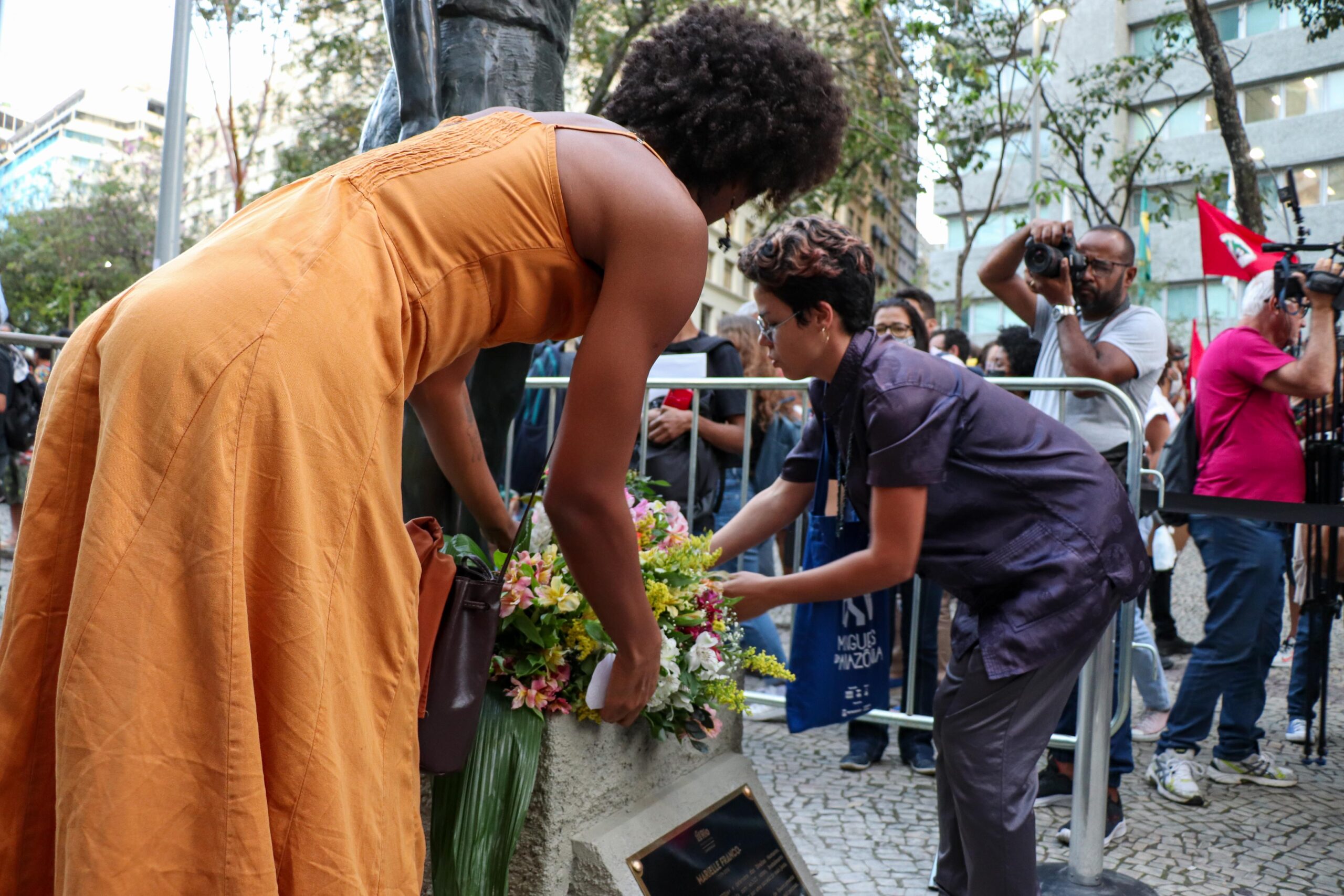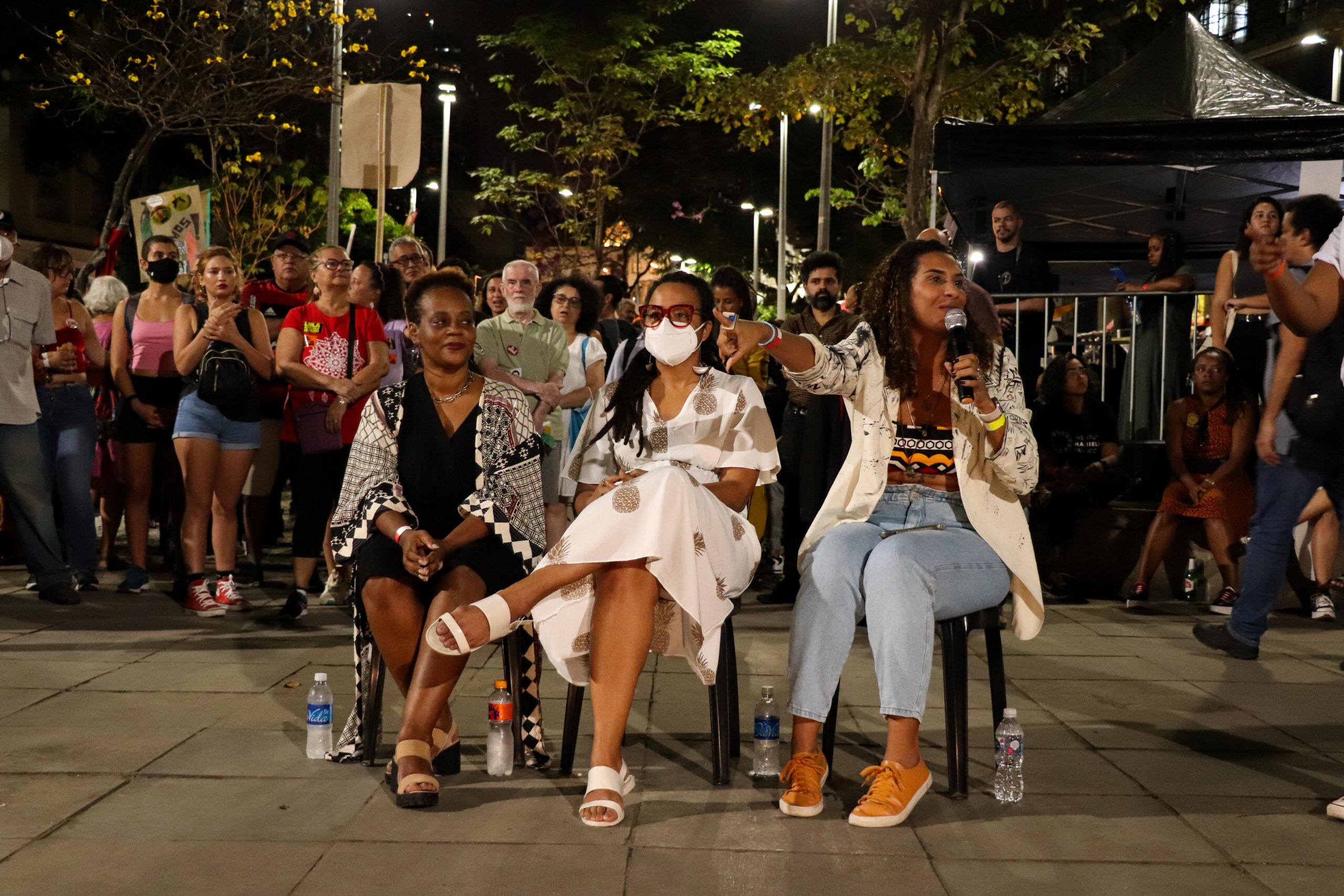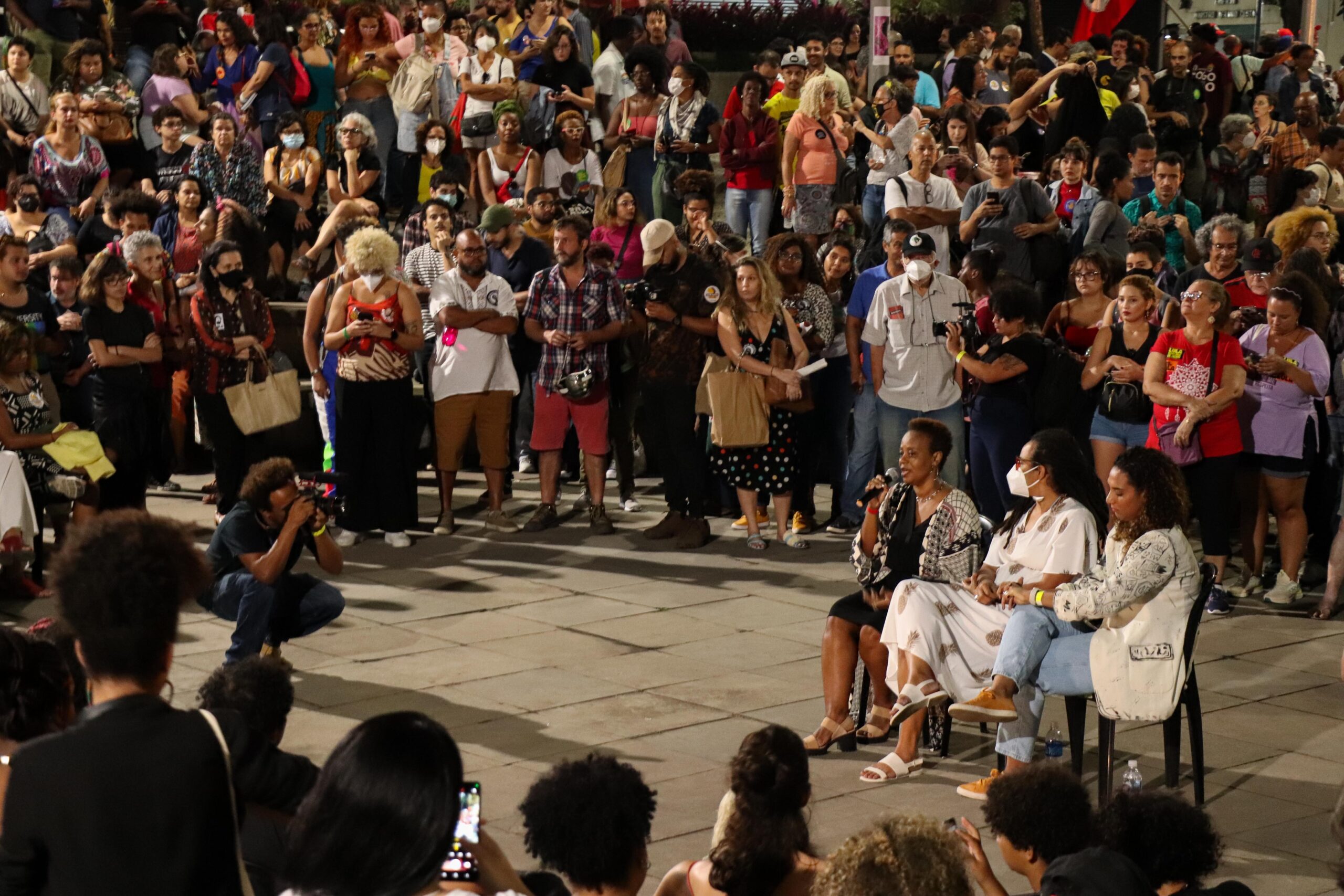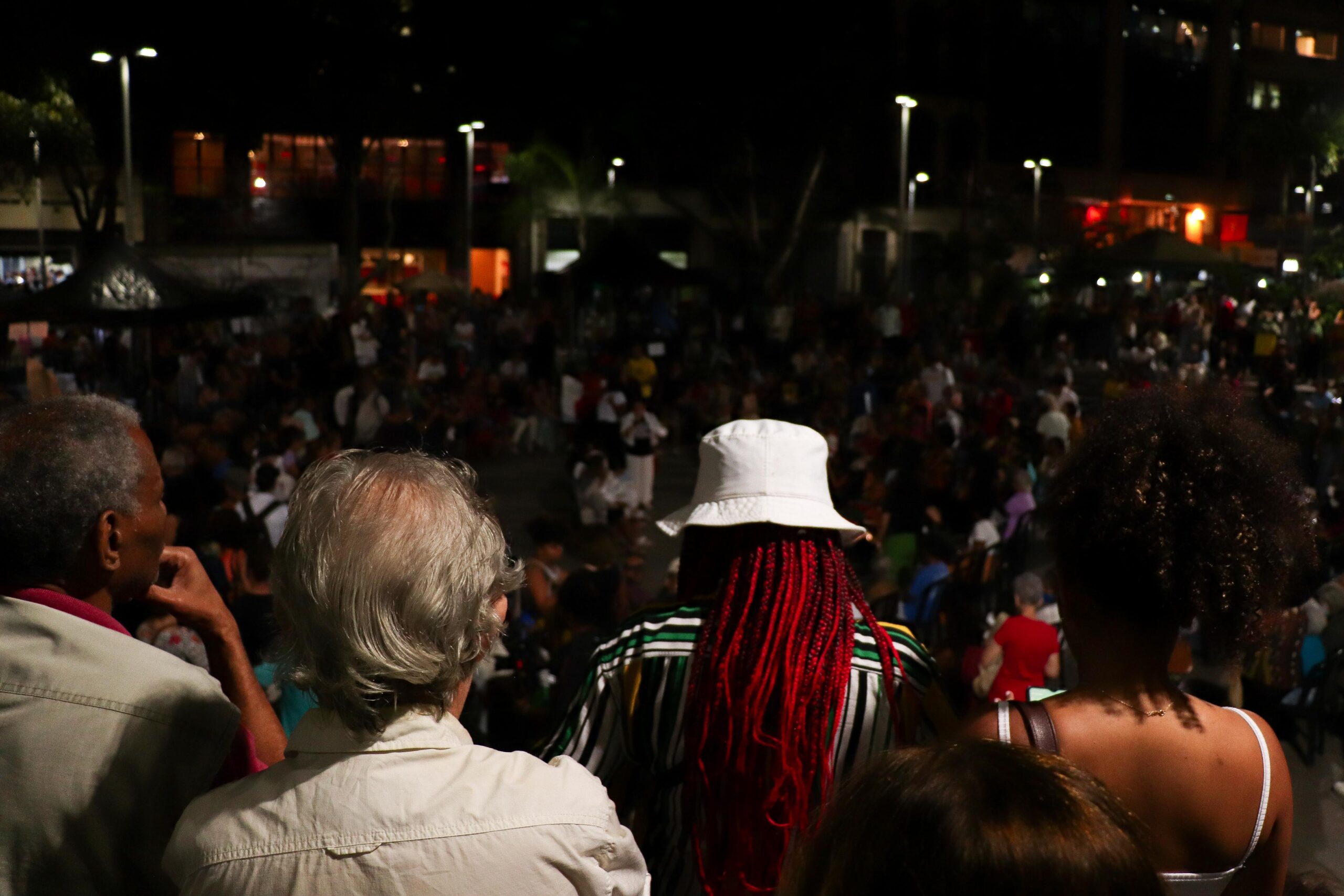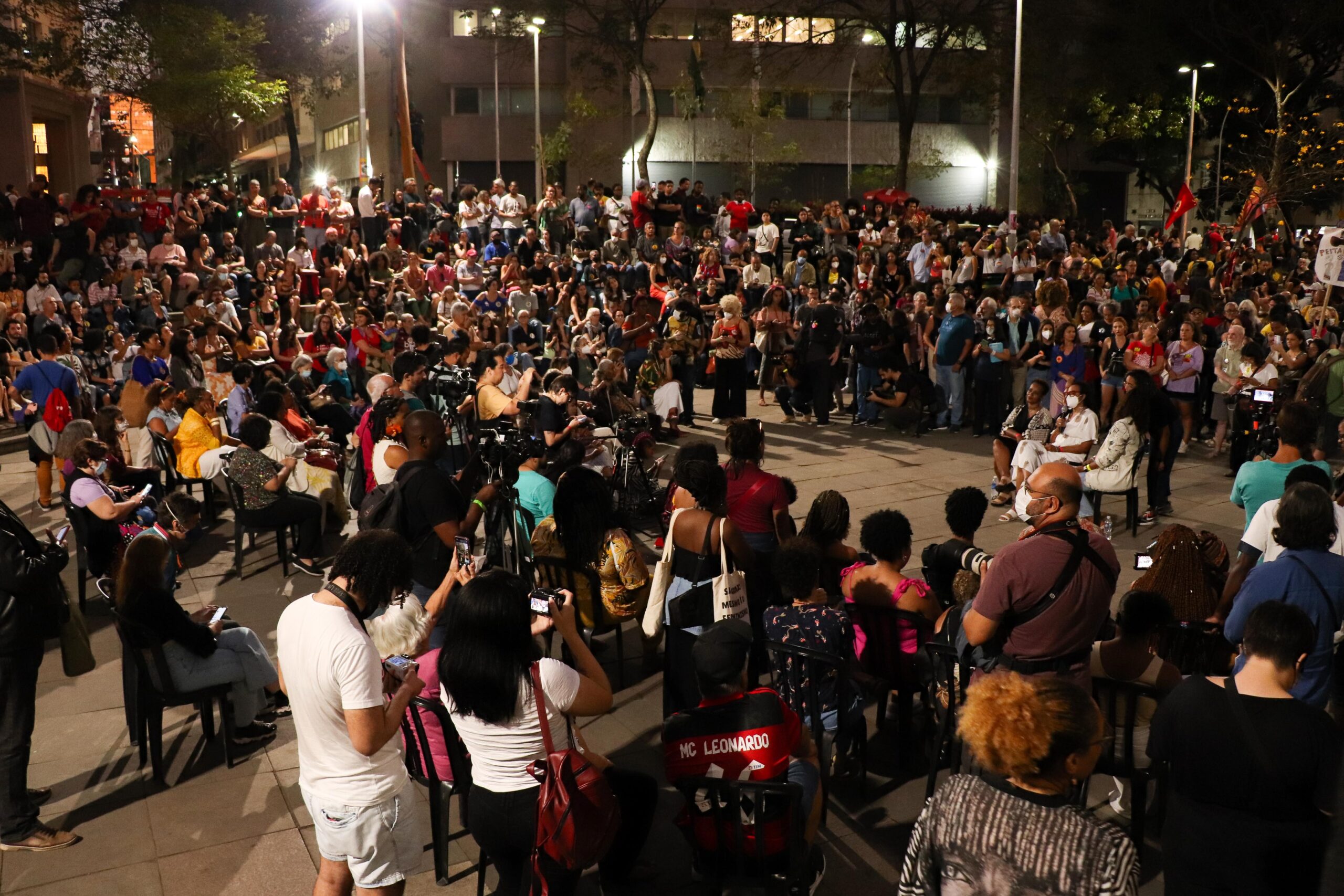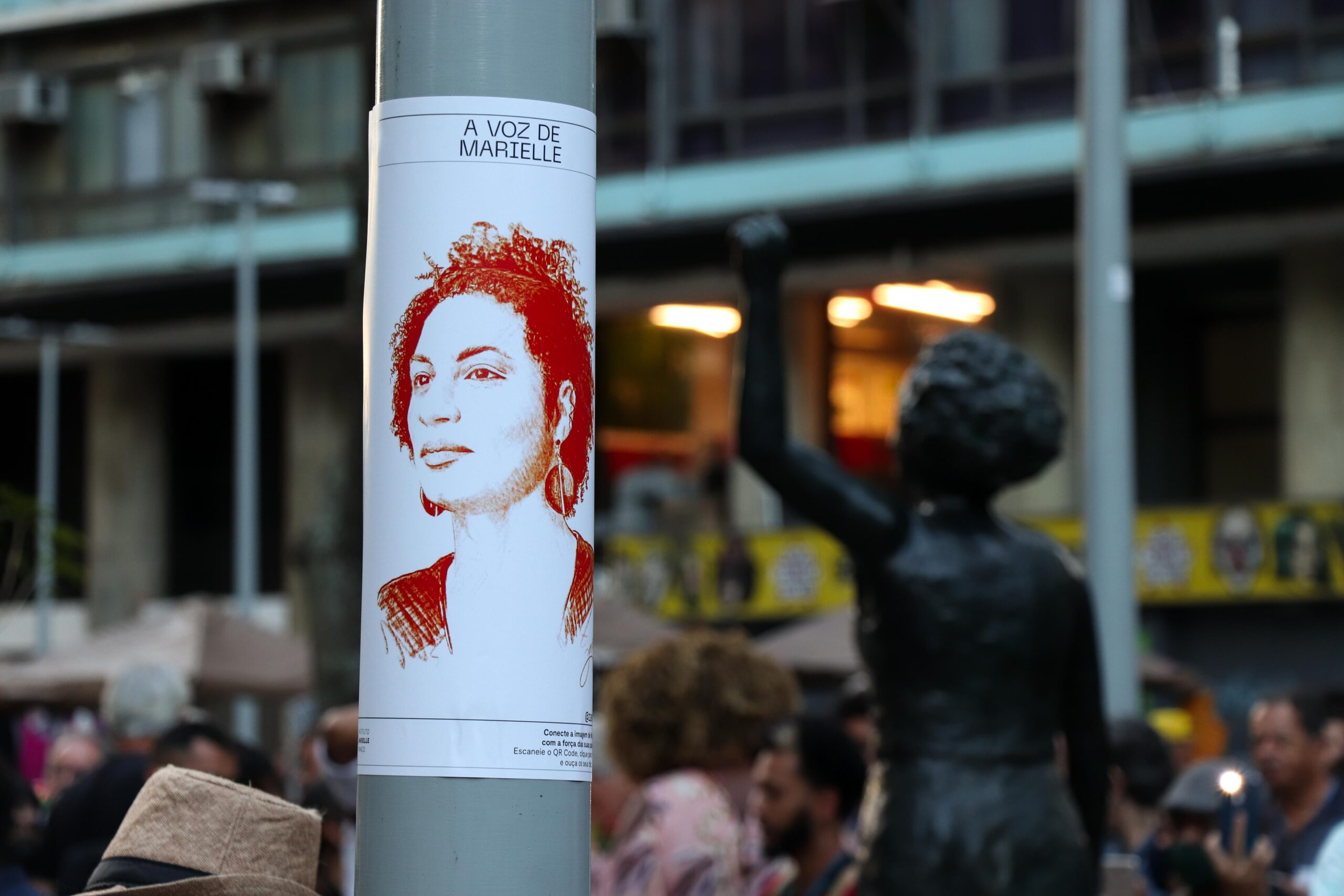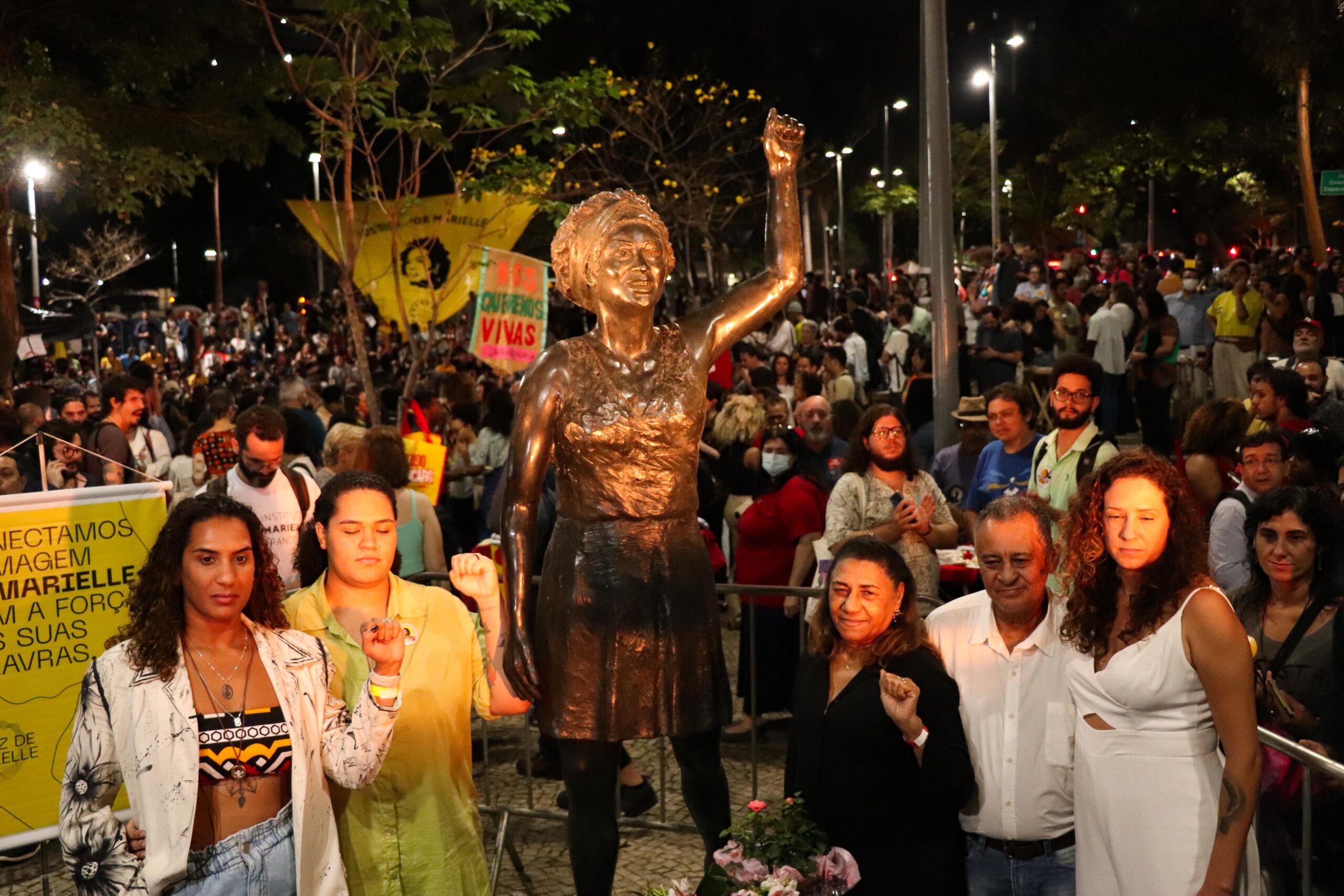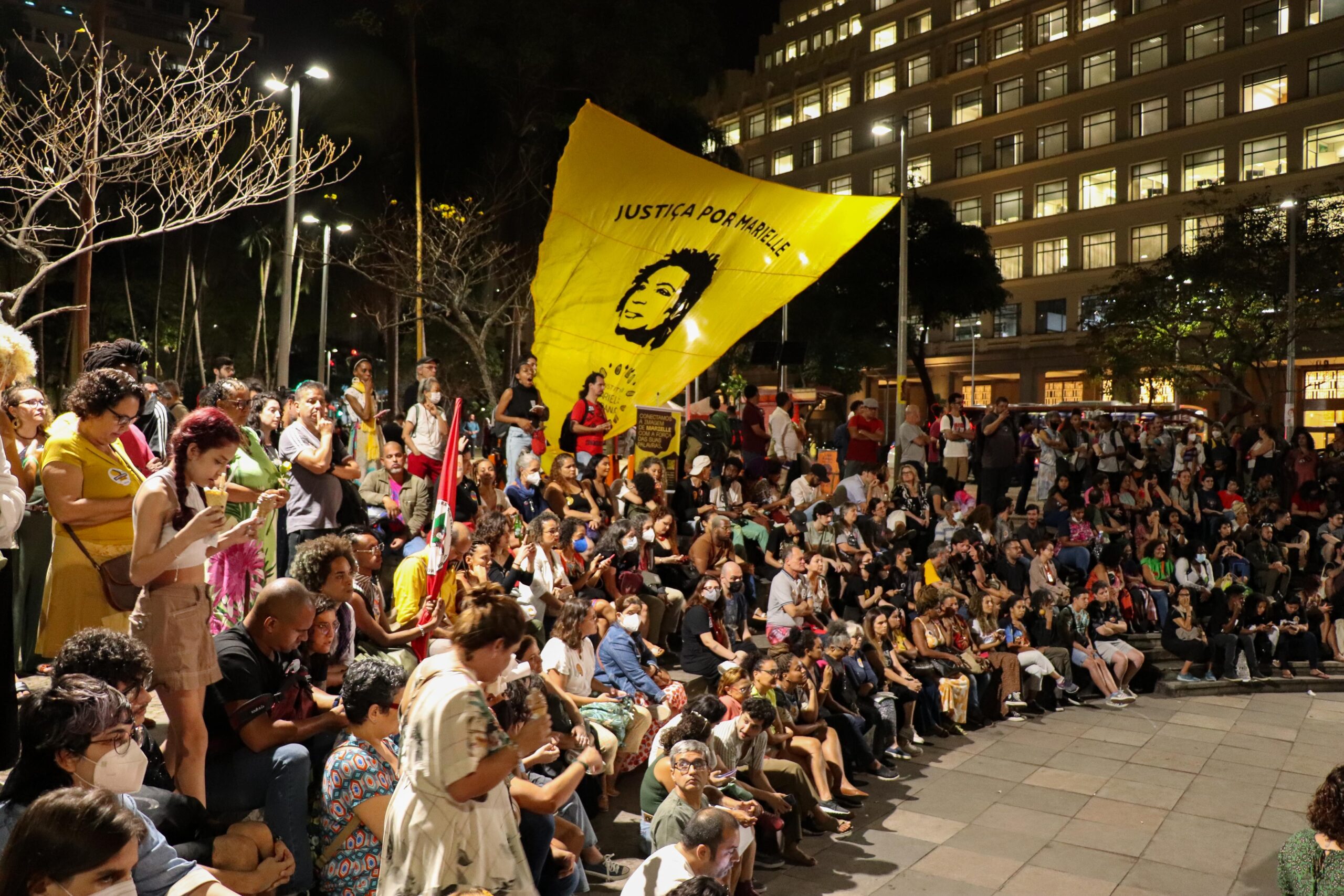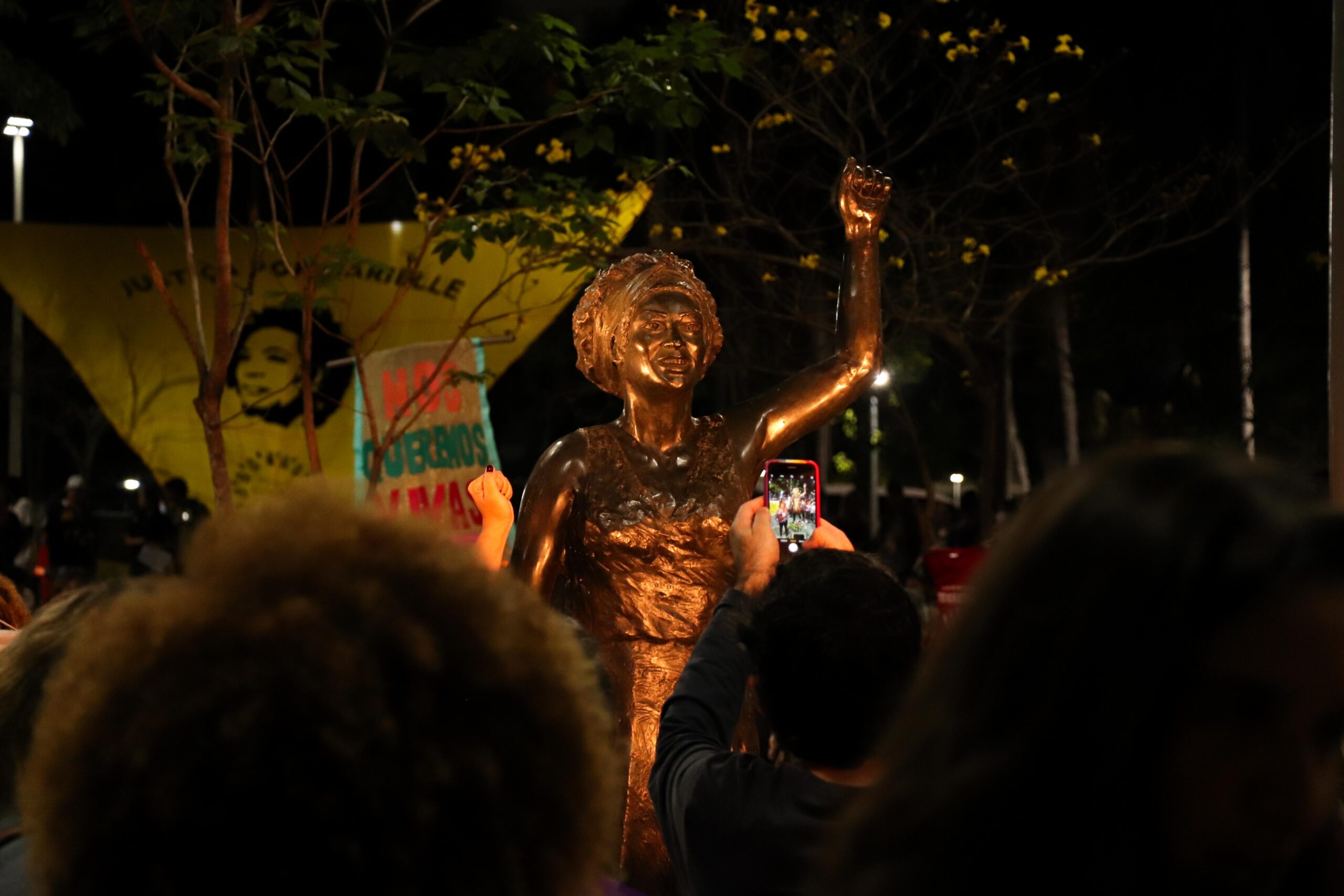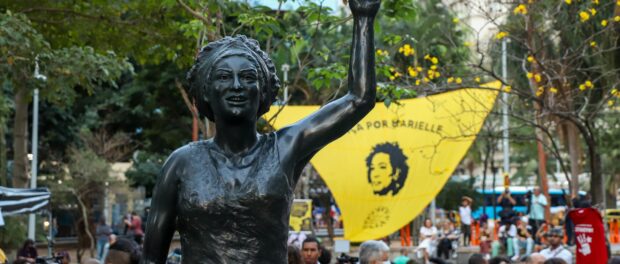
On July 27, 2022, on what would have been her 43rd birthday, a statue of Councilwoman Marielle Franco sculpted by artist Edgar Duvivier was inaugurated at the Buraco do Lume. The square is a historic space for parliamentary action in central Rio de Janeiro, a few kilometers from where the councilwoman was assassinated on March 14, 2018.
As part of the plan to immortalize Franco’s memory, the councilwoman’s life-size bronze statue, built at 1.75 meters, was inaugurated by the Marielle Franco Institute with support from the Mayor’s Office in a ceremony attended by hundreds of people at the Buraco do Lume in Central Rio. The ceremony began at 5pm at this traditional meeting place for Rio’s local political life, presenting the city with the first monument dedicated to the memory of the councilwoman who was born and raised in the favelas of Complexo da Maré. Franco’s mother, lawyer Marinete da Silva, was one of the first speakers, followed by other family members, her fellow PSOL political party members, and other significant figures from local social movements and the Black Movement.
“Many people knew Marielle from the talks she gave here, holding her actions accountable to her voters… speaking about everything that she supported or opposed. Today could have been a different birthday. We could have been cutting many cakes, having a good party, but unfortunately, here we are… there is a before and an after my daughter… She is a turning point. My daughter wasn’t murdered at random: there was something she fought for… we’re here to say that Marielle will always be with us and that with this monument, she will never be forgotten.” — Marinete da Silva
“The [Buraco do] Lume is a place of resistance… Marielle was here every Friday at noon making herself accountable for her work. This is a very symbolic place: it was a part of her life’s work. It’s good that we have reached 2022 still resisting. In a society that is extremely racist, we have a statue of Marielle Franco to remind us of the world we want to build… This is a very exciting moment. I can’t speak without overflowing with the happiness that Marielle’s memory deserves, but also full of pain at her absence… Seeing a square full of people like this conveys the message that Marielle’s death—and life—was not in vain.” — Mônica Benício
Franco’s father, Antônio Francisco da Silva Neto, made a short but very incisive speech. He highlighted that, in his opinion, the masterminds behind his daughter’s murder can only be uncovered through political change at the ballot box, which might come from the 2022 elections.
“I’m very grateful to everyone here today. We really need you. We have the opportunity to change the politics of Rio de Janeiro and Brazil. I believe that, with this change, we can get to those who ordered my daughter’s murder. We need the people here to help us by voting.” — Antônio Francisco da Silva Neto
Neto ended his speech by recalling how much he misses his daughter, who was beloved by her family since she was still in her mother’s womb. “Marielle’s birth 43 years ago was a moment of great joy for me. She was my first daughter, eagerly awaited by her mother,” he said.
Next, Anielle Franco, director of the Marielle Franco Institute, declared she had made a public commitment to her sister’s memory from the moment she learned she had been murdered. She recalled the “crucial support that black women have given to actions in the name of Marielle’s legacy, such as Marcelle Decothé, Lúcia Xavier, and Jurema Werneck, among many others.”
Beginning an open session on memory and legacy taught by black women, Anielle turned the floor over to Ndeye Fatou Ndiaye, an inspiring 17-year-old black activist.
Inauguração da Estátua da Marielle Franco no RJ! Hoje, aniversário dela, é mais do que necessário relembrar a memória de mulheres incríveis como ela. pic.twitter.com/ezpJ5mrB6G
— Fatou Ndiaye | #RENAISSANCE (@fatouoficial) July 27, 2022
Translation of Ndiaye’s tweet: Inauguration of Marielle Franco’s statue in Rio! Today, her birthday, it’s more than necessary to celebrate the memory of incredible women like her.
“Memory is the seed for a new future… it’s not just history or an epistemology of what came before. It’s experience. It’s what we have to learn from the experience of those who came before us: from my mother or my grandmother… we don’t realize that we are making history until we go and look back… us being here today is making history.” — Ndeye Fatou Ndiaye
Following Ndiaye, Thula Pires, law professor at Rio’s Catholic University (PUC-Rio) and coordinator of the Interdisciplinary Center for African Descendent Research and Heritage (NIREMA), began her speech, referencing her Afro-Brazilian religious roots: “I am the mother of Dandara, a woman of [our sacred force] axé. She is an ekedi of Oshosi and a child of Oya and I am deeply moved to be here, in a public square, for a woman like Marielle. It’s deeply moving to be here, sitting next to these women, facing Marielle, represented a little [by this statue].” Before reflecting on memory, she invited the audience to fight: “May this energy of outrage against a world that insists on vilifying our existence also be an energy capable of producing a deep, structural transformation.” She then pondered:
“Through memory we demand justice… This is an opportunity to advance on the reparations that black communities in Brazil so desperately need… we’re here, loud and clear, saying that we will not allow the historic processes of holding back black women in this country to continue…
In the word ‘memória,’ (memory) between the ‘mem’ and the ‘a,’ sits the word ‘ori,’ which from an Amefrican perspective may mean ‘head.’ This head can be physical or something inside of us; something that guides, serves as reference, as orientation; that brings together our intellect, our memories and thoughts, linking past, present and future, taking on the political meaning of black awareness. It’s not just the physical head that sits on your neck but the spiritual head, which represents the ‘self’ in its deepest sense.
The ‘ori’ is the foundation of who we are: the eyes that allow us to see sit on our heads; the mind that allows us to remember and protect the memories we live through; and the mouth that allows us to speak, to say what we mean, to tell stories, to have conversations and to feed ourselves. Our heads ORI-ent us. This ORI-entation, our ‘selfhood,’ only occurs through the comm-UNITY. It’s in this comm-UNITY that our ORI-entation might be understood as motion, as a march forward.
This notion of being ORI-ented is also linked to space: being ORI-ented implies the construction of a new space, a new world, and a new reality. Or, as Beatriz Nascimento teaches us, it implies the creation or recreation of a nation, which, for the religious traditions of African origin in Brazil, takes us back to a mythical, historical, personal, symbolic, and material territory. It’s a nation that embraces a sense of belonging. To be from a nation is to be a nation. It means to act collectively, to have solidarity, to face conflicts collectively, and to create spaces collectively: to embrace, to show our affection for others. It’s through mem-ORI, which has survived the torturous paths of erasure, that we intend to reflect on Marielle’s legacy—to reflect on the seeds that insist on sprouting.” — Thula Pires
Eliana Alves Cruz, a writer and friend of Marielle, was the last speaker of the open session on memory before the ceremony’s closing. Speaking from a personal standpoint, she described the importance of acts like the inauguration and of more efforts to document the history of black and indigenous Brazilians.
“Sitting here, in front of Marielle, I’m reminded of the last time I saw her. We were at a hair salon. Me and her sitting side by side, looking in the mirror, looking at our oris. Her disappearance meant a lot to the country, to Rio, and to my family in particular.
Why am I here? I’m a writer who started my career in literature with a novel that mapped out the history of my own family, from Africa to Brazil, following up on 170 years of history leading up to the present day. It’s the novel Água de Barrela. Later, I wrote O Crime do Cais do Valongo, Nada Digo de Ti que em Ti Não Veja, and most recently Solitária.
I am a writer, essentially someone who tells stories. I’m someone who needs to drink from the fountain of memory, who needs to understand what goes on inside each one of us. Therefore, I observe. If it weren’t for the footprints of those who came before us, we would never be here. We are the products of this long chain of history.
A statue is very important because it’s a document. How was I able to map out the history of my family? Because I found documents, there were material sources. The spoken language is great, it allows us to remember things and we’re deeply affected by what a person may tell us, but traces must be left behind. Things have to be documented. We have to fight to have our history written down and recorded. We are gathered here today in this square to blaze a path away from the tree of oblivion… we are subverting time itself. We are remembering! As we must remember! … Ancestrality isn’t just talking about the past, but of the present and the future!
A person like Marielle, who carried out politics in the most joyful way I have ever seen until that moment… who used her mandate in such a happy way!… The people [before her] tried to convince me that they would do something useful for my life, with a completely utilitarian, selfish idea of what it’s like to be in a community. A community is more than just me: one day I will pass away, but the community will stay. We need to think of what comes after us, of what happens when we are no longer here. This is how to do politics correctly, to think of collectivity… to think of people as part of a huge family, which is what I feel is happening here today.” — Eliana Alves Cruz
Cruz also made sure to highlight the completely ordinary character of history.
“This image of me at the hair salon talking to Marielle, talking about totally absolutely commonplace things—things that are incredibly profound because they are commonplace… they are the things that turn memory into literature. History isn’t just made of moments like the ‘Cry of Ipiranga’: it’s made here, on the streets, especially in life’s little things.” — Eliana Alves Cruz
At the end of her speech, Cruz said that she understands Marielle’s assassination as an extreme attempt at erasing history. She said that reaffirming Marielle’s memory is a fundamental action against this erasure, standing up for life itself. She concluded by questioning the myth that Brazilians have no memory, saying:
“Brazil is not a forgetful country. Brazil remembers. The issue is Brazil’s selective memory. Brazil wants to forget certain things and remember others… and we will not forget!”
Brazil is marked by selective forgetfulness and the erasure of non-whites. In the Lume, a place so historically marked by Marielle’s voice, the Marielle Franco Institute installed a technological solution designed to bring the public closer to Franco’s memory and legacy. Besides the statue, posters with QR codes have been posted onto the square’s lamp posts directing people to her historic speeches in the City Council, with a feature called “The Voice of Marielle.”
Looking to the past as a means of building a better future is an ancestral technology of black culture in the diaspora used to acquire knowledge and wisdom by searching the heritage of those who came before us. Like the Adinkra of the Akan peoples of Ghana, Marielle’s statue is Sankofa, an Akan symbol that expresses the idea of “San” (to go back, to return), “Ko” (to go) and “fa” (to look, to seek, to get). It’s necessary “to return in order to find” what Marielle left as her legacy.
“After all, it’s not just what you leave behind, but what you take forward.” — Mônica Benício
Before, July 27 was marked by the sound of Marielle’s open laughter. Today, in contrast, it’s a day where the cries of #JusticeforMarielleFranco and #MarielleIsPresent draw out the saudade of friends and family. The path to celebrating Marielle’s life can no longer be found in her smile: it’s in her memory, which resonates with the fight of millions of others.
It is not enough to elect black women. We must protect them, ensure that they remain alive, and carry out the terms that they were elected for.

